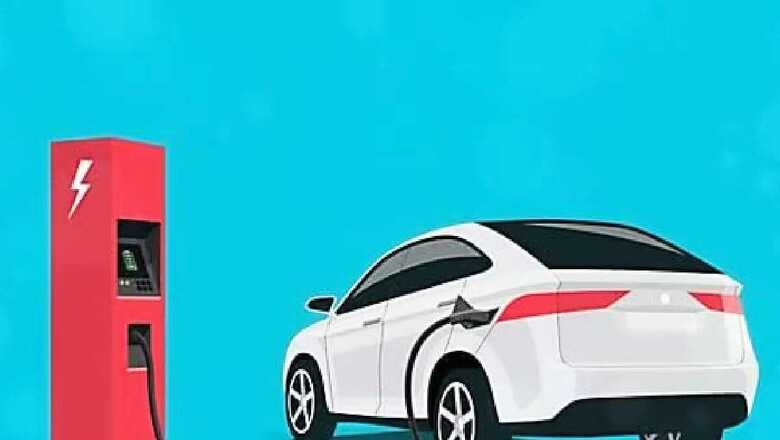
views
Faster Adoption and Manufacturing of Electric Vehicles (FAME) is preparing to launch its third edition of the electric vehicle (EV) incentive scheme soon.
As per reports, FAME 3, which will cost about Rs 10,000 crores, will mainly target government-owned buses, electric two-wheelers, and three-wheelers.
It is still up for discussion whether or not to include electric cars, especially for institutional buyers such as taxi aggregators. It is also anticipated that the FAME 2 scheme, which concluded in March 2024, will be substantially mirrored by this new edition. Electric scooter sales in the country were previously subsidised by FAME 2 by 15 per cent.
Meanwhile, FAME 3 is meant to build on the work of the Electric Mobility Promotion Scheme (EMPS). According to Business Standard, it is a temporary measure implemented following the conclusion of FAME 2. With a total commitment of Rs 500 crores, EMPS would assist electric two- and three-wheeler sales for four months, which is until July 2024.
Under EMPS, the government provides incentives of up to Rs 10,000 for each electric two-wheeler and up to Rs 50,000 for every electric three-wheeler, with both categories receiving Rs 5000 per kWh.
The FAME scheme, which was first established to stimulate local manufacturing and sales of electric vehicles by providing customers with demand incentives, now requires all companies seeking incentives under FAME 3 to undergo new certification.
As per the proposal, FAME 3 will be valid for two years, as opposed to FAME 2’s five-year term. Furthermore, the objective of the new scheme is to enhance the number of electric buses that State Transport Undertakings acquire at reduced prices.
Under FAME 2, the government incentivised the purchase of 7,000 electric buses, a figure that is likely to increase under FAME 3.
In addition, FAME 3 is likely to exclude subsidies for electric vehicles, even for commercial use. The country is debating whether or not to provide subsidies for electric vehicles.
The latest proposal, like FAME 2, involves providing incentives for electric vehicles priced less than Rs 15 lakhs. Meanwhile, hybrid vehicles may also be eligible for assistance, with the same price cap as passenger vehicles.
The government is also introducing new standards for the new scheme, and firms seeking benefits will need to recertify.
Moreover, EMPS intends to boost sales of 372,215 electric cars, including 333,387 electric two-wheelers and 38,828 three-wheelers, by providing incentives for vehicles with sophisticated batteries.

















Comments
0 comment